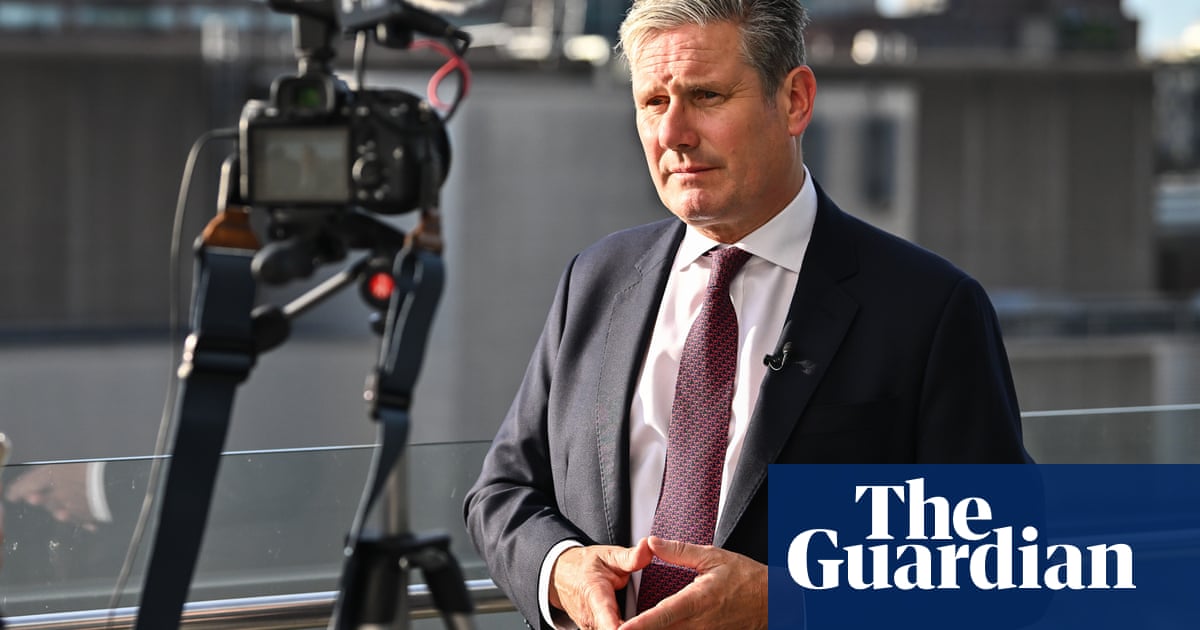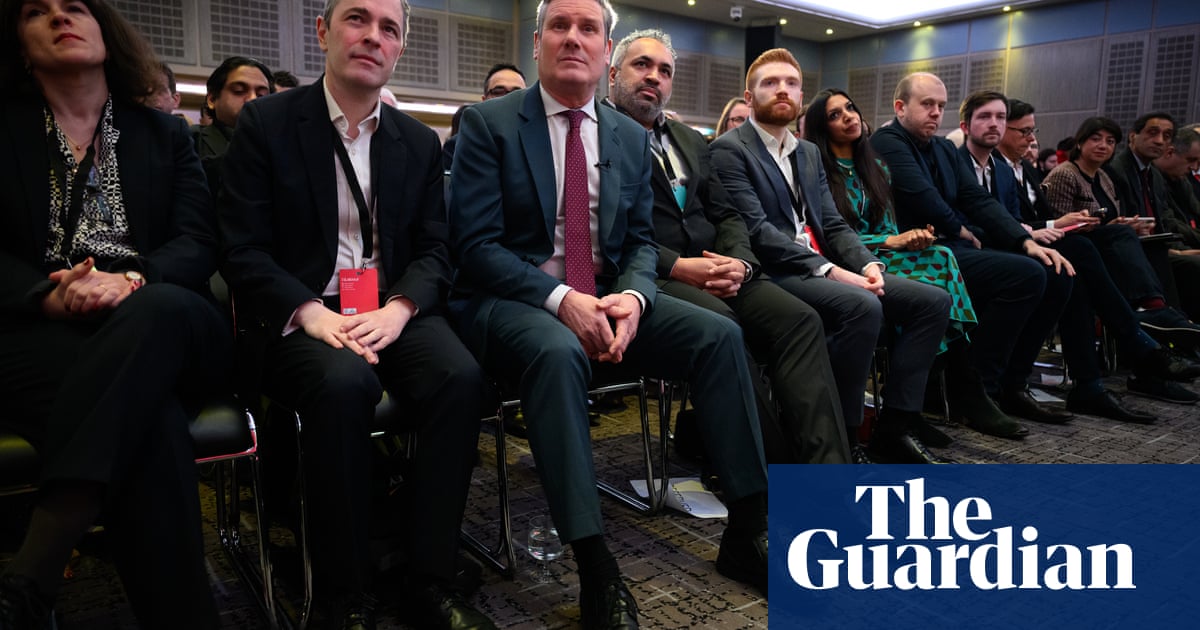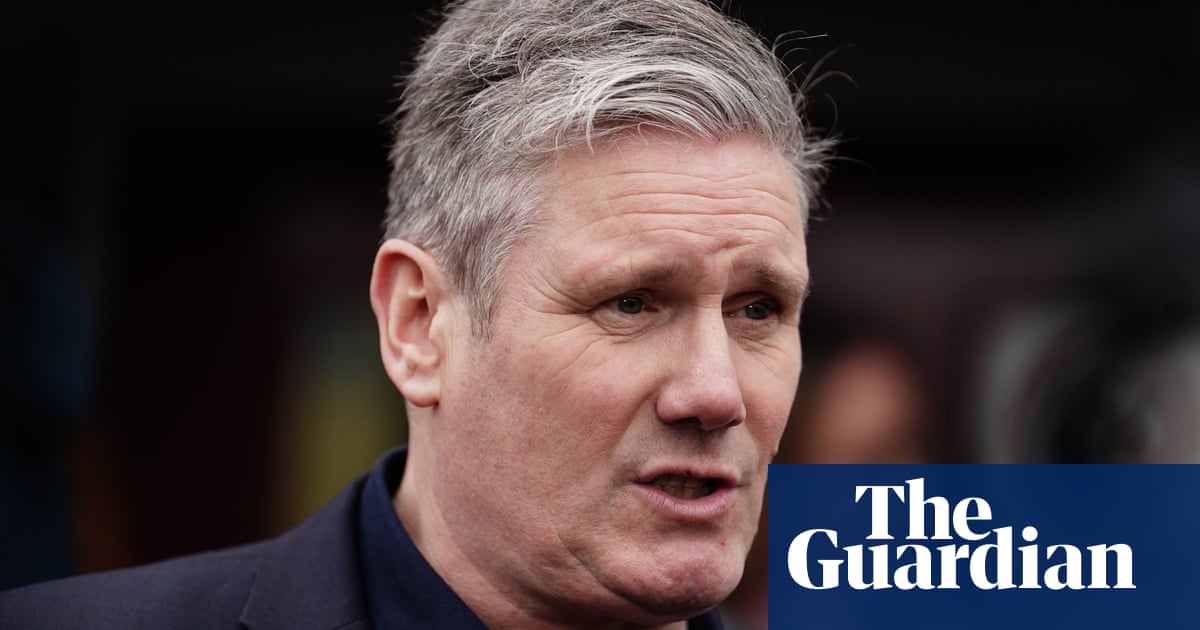
In more than half a century, only two men have taken Labour from opposition to government. You have to be over 40 to have voted in the 1997 election that rewarded Tony Blair with his first landslide. You have to be 78 or older to have voted in the 1964 election which put Harold Wilson in Number 10.
It would repay Sir Keir Starmer and his recently refreshed shadow cabinet to study what these examples of rare Labour winners tell us about what it takes to be a successful opposition. One clue is in the job title. You have to oppose effectively. This does not simply amount to seizing every opportunity to expose and eviscerate the faults and follies of the prime minister and his cabinet. It also means exploiting those flaws in support of a pitiless account of why the incumbents are not fit to remain in government. Wilson relentlessly scorned the Tories of his day as a party out of touch and out of time. “Thirteen wasted years” was a label which stuck. Blair had the advantage of being opposition leader as John Major’s government slithered into a mire of sleaze and division, but that didn’t mean he just sat back and waited for power to drop into his lap. As Andrew Adonis reminds us in his excellent new book about the importance of leadership, Mr Blair was formidable at destroying the credibility of the incumbent. “Weak, weak, weak” and “I lead my party, he follows his” – the brutal phrases he used to dismantle the public reputation of his Tory opponent – “pierced Major to the political core”.
The closest Sir Keir has come to something similar was in his party conference speech when he lambasted Boris Johnson as “a trivial man… a showman with nothing left to show… a trickster who has performed his one trick”. It is never enough to say things once when you are leader of the opposition. Sir Keir needs to be as unrelenting as his two successful predecessors were.
The main prongs of his attack on the government have been to go after them on sleaze and incompetence. He’s had plenty of material to work with and it suits the prosecutorial style of a QC. Making competence the defining issue works well for Labour when the government is being very obviously incompetent, such as during the long periods of last year when its handling of many aspects of the pandemic was so terrible. Sir Keir then faltered when the government could claim credit, even if it was not wholly deserved, for the rapid rollout of the vaccination programme. At the most recent meeting of the shadow cabinet, several present argued that they ought to broaden the ways in which they go after the government.
During the 20 months that Sir Keir has been Labour leader, the performance of the shadow cabinet has been good in parts and invisible in others. This reflected on them, but also on Sir Keir himself, because they were his picks in the first place. The comprehensive reshuffle he executed last week was long overdue. Too many of his previous frontbench greeted opportunities to make a splash not with dynamic enthusiasm, but quivering timidity. That was a big problem because a lot of the battle in opposition is seizing the attention of the public. The Labour leader sought to remedy that with a shake-up that replaced or moved all but five members of his senior team and elevated energetic personalities who are accomplished performers in the media. The consensus among both the Labour and Conservative MPs I have spoken to is that Sir Keir is now equipped with a much sharper top team. After the leader himself, three members of the shadow cabinet will be especially critical to whether Labour prospers or fails. Rachel Reeves, the shadow chancellor, must fashion an approach to the economy that combines radicalism with credibility. Yvette Cooper, returning to the frontbench as shadow home secretary, has to build public confidence that Labour has the right answers on crime and immigration. Lisa Nandy will take on Michael Gove. Her central challenge is to make “levelling up” a winning issue for Labour. “That’s key to taking back those red wall seats,” remarks one of her colleagues.
The new line-up faces a government in trouble on numerous fronts. Since the party conferences, the Tories have been beset with a clustermare of negative stories, most of them self-generated, including broken promises over high-speed rail and social care, a tax-hiking budget, the crisis in the Channel and now constantly contradictory advice about how people should or should not change their behaviour in response to the Omicron variant. The Owen Paterson affair and Johnson’s rambling digressions about Peppa Pig to the CBI have reinforced impressions of a sleazy government led by an unserious prime minister.
The byelection in Old Bexley and Sidcup, which the Conservatives hung on to with a much reduced majority from a low turnout, tells us that there is discontent among those who voted Tory at the last election, even in territory that is historically very true blue and also very Brexity. Labour has improved on its diabolical position at the last general election, but still has a lot to do if it is to be confident of wiping out the Tory majority next time around, let alone pulling off the sensational scale of swing required to secure a majority for itself.
The opinion polls have the two parties neck and neck. This is more encouraging for the government than it is for the opposition. Previous Labour leaders, among them Neil Kinnock and Ed Miliband, enjoyed substantial poll leads at the midterm point of the cycle only to be beaten at the subsequent election.
Sir Keir’s refettled shadow cabinet is expected to bring more heft and bite to Labour as an attack machine, but that is only half the challenge. The other half is to turn Labour into a party that looks ready to govern. Voters can come to the conclusion that this government is deeply sleazy and highly incompetent and they will still re-elect the Tories if they are not convinced that Labour is making a superior offer.
Here, the examples of Wilson and Blair are again instructive. Both successfully portrayed the Tories as representatives of a discredited status quo and Labour as the party of the future. Both had a narrative about modernising the country. Both promised a “new Britain”. There’s nothing so old as to promise to make things new – and no story as powerful if it can be told in an inspirational and plausible way. Wilson expressed his vision in the ambition to create a reinvigorated country “forged in the white heat of the technological revolution”. It didn’t exactly work out like that once he was in Number 10, but the magnetism of his narrative helped him get there. Blair was a maestro at distilling his mission into compelling slogans. “Education, education, education” and “tough on crime, tough on the causes of crime” left no one in doubt about what he was about. This is a non-trivial point. If you haven’t got the ideas and you can’t express them with a crispness and clarity that will cut through to voters, then you have no business being in modern politics.
The most charitable thing to say about Sir Keir’s party is that framing and communicating a positive and persuasive account of what a Labour Britain would look like is still a work in progress. More than one recent study has reported that many voters either don’t know what Labour stands for or they think they know and don’t like it. An analysis of new research for the Tony Blair Institute by Peter Kellner, the Labour-sympathetic former president of YouGov, notes: “No successful opposition has been anything like as far from the winning post in the midterm period as the Labour party is today.” The study suggests that this can be improved but only if Labour can persuade voters that it is “competent, in touch and has a relevant agenda for improving everyday life”. The next election could be as soon as the spring of 2023, just 18 months away. “We’re getting past the point where just attacking the government is enough,” says one astute member of the shadow cabinet. “We’ve got to marry our critique of them with a vision of our own.”
Being effective at taking apart the Tories is important, but not enough. The most critical challenge is to put together a convincing case that the country would be better served by a Labour government. Sir Keir can only hope to emulate Harold Wilson and Tony Blair if he and his new top team can do that.
This article was amended on 5 December 2021. People have to be 78 or older to have voted in the 1964 election, not 75 or older as stated in an earlier version, because the voting age was 21 at the time.
Andrew Rawnsley is Chief Political Commentator of the Observer












